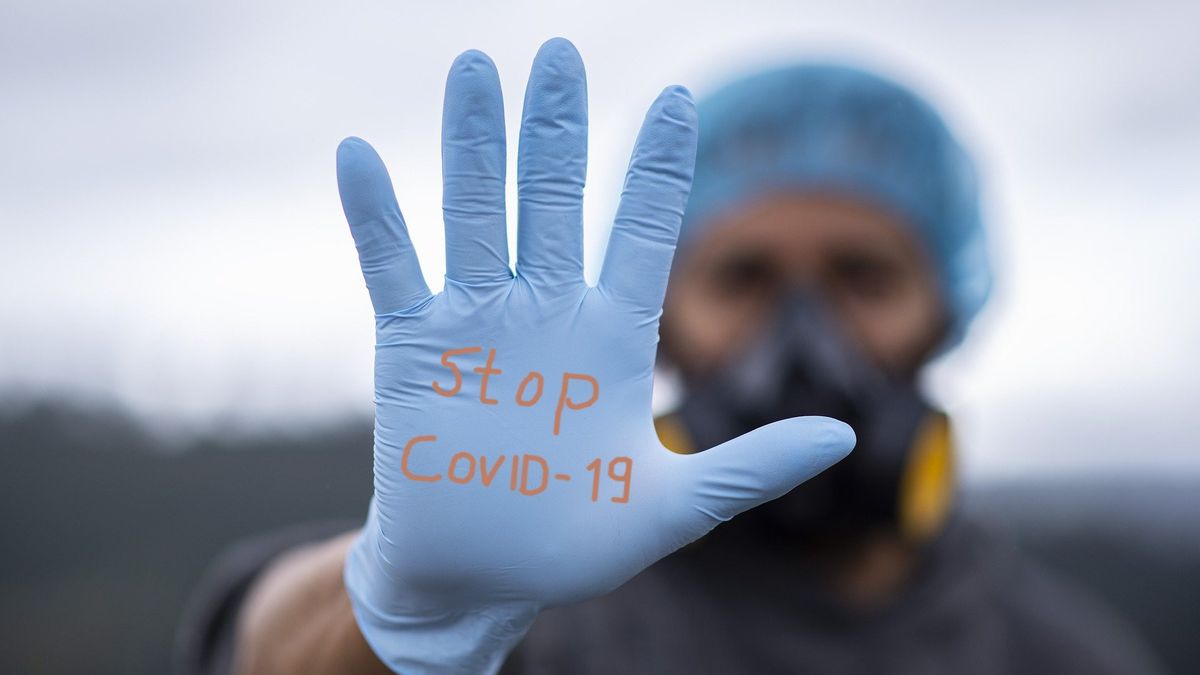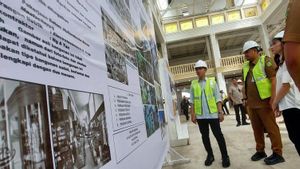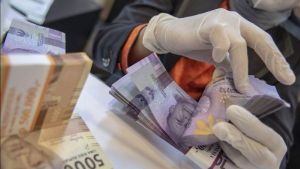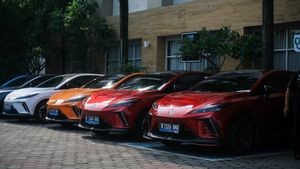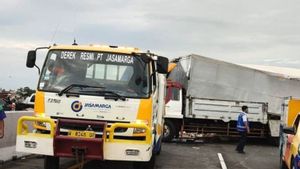JAKARTA - The increase in COVID-19 cases in Indonesia has prompted the government to impose partial restrictions on community activities (PPKM) in Java and Bali in certain areas from 11 January to 25 January. However, there are regions that have objections to the imposition of this restriction and one of them is the City of Surabaya.
The acting mayor of Surabaya, Whisnu Sakti Buana, objected that his city was included in one of the areas the central government had requested to conduct PPKM. Apart from feeling that his staff had been able to control the COVID-19 pandemic, he felt it was unfair because there were four regions in East Java Province that were included in the red zone but were not asked to impose restrictions.
In addition, Whisnu considered this restriction should be carried out thoroughly in East Java. The reason is, if it is only done partially, he is worried that existing hospitals or health facilities in areas that are improving will even be used as referrals from areas that do not impose restrictions.
So, if it is allowed to make suggestions, the City of Surabaya wants the central government not to impose this restriction.
"We also still have time to propose this to the center. The point is we will try our best for the City of Heroes," said Whisnu in Surabaya, East Java, Thursday, January 7.
Spokesperson for the Task Force for Handling COVID-19, Wiku Adisasmito, said that restrictions on community activities in Java and Bali are mandatory. Therefore, regions that refuse to implement this restriction must follow it in order to reduce the rate of increasing COVID-19 cases in Indonesia.
"Any party that refuses to follow the policy of the center is to immediately heed the government's instructions because it is mandatory," he said in an online press conference held on the Presidential Secretariat's YouTube account.
The policy of limiting this, he said, was taken by the central government to accelerate the handling of the pandemic. Not only that, these restrictions have been designed to balance the health sector and the economy.
In addition, this policy was not taken carelessly by the central government. Wiku said, the government has paid attention to several indicators to implement this rule, such as considering areas with red zones and being the highest contributors to the increase in COVID-19 cases in the country.

A public policy observer from Trisakti University, Trubus Rahardiansyah, assessed that the central and regional governments should sit together to coordinate and collaborate with each other. In addition, the two of them had to sit together to hear each other about each other's needs because each region certainly had differences.
Not only that, the central government also considered Trubus to have to open communication intensely and explain the partial restrictions on the island of Java-Bali. This is because previously the central government had implemented Large-Scale Social Restrictions (PSBB).
"If this community limitation is to be implemented, it must be explained (thoroughly, red) if this is different from the PSBB, for example. Because before there was a PSSB, then this restriction, so not the region, the community must understand it differently and this eventually becomes something that is confusing, "said Trubus when contacted by VOI.
If the central government does not want to sit down together, then the objections expressed by the City of Surabaya are normal.
In addition, Trubus also considered that this limitation should be carried out simultaneously, not partially, as is currently being done. Agreeing with the reason of the City of Surabaya, he assessed that if this restriction was only carried out in certain areas, it is not impossible for areas that are already under control to have an abundance of COVID-19 patients.
"If you want this restriction, you can do it all simultaneously. It's just that the government must coordinate and collaborate so that the community can be controlled. During the Christmas and New Year holidays, we can coordinate," he said.
If in the future there are still regional heads who are stubborn or insist on not wanting to implement this restriction, Trubus assesses that, referring to the Minister of Home Affairs Instruction Number 6 of 2020, the regional head can be sanctioned or dismissed. "If there is a regional head who does not want to do this, he will be subject to sanctions and even be removed from it," he said.
"But to come back again, all parties do have to sit together, so they know the needs of each region. Because to do this is also infrastructure, completeness of equipment. As well as perhaps the budget, moreover they have been faced with the COVID-19 situation for a year. This means that the budget may also be running low, the difficulty is because there is no revenue from the restricted sector. So objections, rejection will continue to exist. Even in the end, it could be disobedient, "he added.
Previously, the Chairman of the Committee for Handling COVID-19 and National Economic Recovery Airlangga Hartarto announced that the central government had decided to restrict community activities in a number of areas in Java and Bali for two weeks.
As for areas in Java and Bali that have restricted activities, Jakarta and its surroundings include DKI Jakarta, Bogor, Bogor, Depok, Bekasi and Bekasi districts. Then in Banten covering Tangerang, Tangerang Regency, South Tangerang and Tangerang Raya. In West Java, outside Jabodetabek includes Bandung, West Bandung Regency and Cimahi Regency.
In Central Java are Semarang Raya, Solo Raya and Banyumas Raya. DI Yogyakarta includes Gunung Kidul Regency, Sleman Regency and Kulon Progo. In East Java, including the City of Malang Raya and Surabaya Raya. Lastly, Bali includes Denpasar City and Badung Regency.
The English, Chinese, Japanese, Arabic, and French versions are automatically generated by the AI. So there may still be inaccuracies in translating, please always see Indonesian as our main language. (system supported by DigitalSiber.id)
